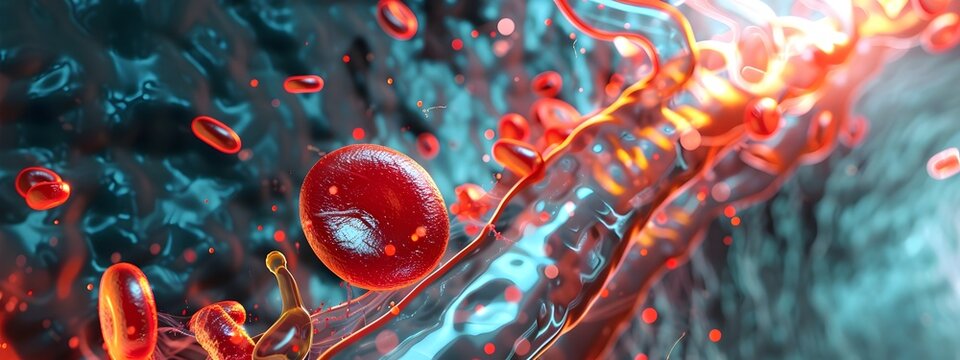Diabetes: An Overview
Diabetes is a chronic health condition that affects the way the body regulates blood sugar (glucose), which is an essential energy source for the body’s cells. When someone has diabetes, either their body does not produce enough insulin or it cannot use the insulin effectively. Insulin is a hormone produced by the pancreas that helps move glucose from the bloodstream into the cells. When this process is disrupted, blood sugar levels become too high, leading to serious health problems over time.
Types of Diabetes:
Type 1 Diabetes:
- Description: This is an autoimmune condition in which the immune system mistakenly attacks and destroys the insulin-producing beta cells in the pancreas. As a result, the body produces little or no insulin.
- Age of Onset: It often appears in childhood, adolescence, or early adulthood, though it can occur at any age.
- Management: People with type 1 diabetes require daily insulin injections or an insulin pump to control their blood glucose levels. Alongside insulin therapy, a balanced diet, regular exercise, and consistent blood sugar monitoring are key components of management.
Type 2 Diabetes:
- Description: This is the most common form of diabetes, affecting about 90% of people with the condition. It occurs when the body does not produce enough insulin or the body’s cells become resistant to insulin (known as insulin resistance).
- Risk Factors: Being overweight, sedentary, and having a family history of diabetes increase the risk of developing type 2 diabetes.
- Management: Type 2 diabetes can often be managed through lifestyle changes such as a healthy diet, weight loss, regular exercise, and blood glucose monitoring. Medications may be prescribed if lifestyle changes are insufficient to manage the condition. In more advanced cases, insulin injections may also be necessary.
Gestational Diabetes:
- Description: This type of diabetes develops during pregnancy when the body cannot produce enough insulin to meet the extra demands for blood sugar control. It usually resolves after childbirth but can increase the risk of type 2 diabetes later in life for both the mother and child.
- Management: Women with gestational diabetes are closely monitored to ensure blood glucose levels are kept within target ranges, often through dietary changes, regular physical activity, and sometimes medication or insulin.
Key Statistics:
- In the UK, about 4.7 million people are living with diabetes, with this number projected to increase to 5 million by 2025.
- Type 2 diabetes makes up the vast majority of diabetes cases in the UK, whereas type 1 diabetes affects a smaller percentage.
Symptoms of Diabetes:
Common symptoms to watch for include:
- Excessive thirst (polydipsia)
- Frequent urination, especially at night (polyuria)
- Extreme fatigue
- Unexplained weight loss
- Itchy skin around the genital area or recurrent thrush infections
- Slow-healing cuts or wounds
- Blurred vision
When to See a Doctor:
It is important to seek medical advice if you experience any of these symptoms or have risk factors for diabetes (such as a family history of the condition, being overweight, or leading a sedentary lifestyle).
Causes of Diabetes:
- Type 1 Diabetes: Caused by an autoimmune reaction that destroys insulin-producing cells in the pancreas. The exact cause is unknown but may involve genetic and environmental factors.
- Type 2 Diabetes: Develops when the body becomes resistant to insulin or when the pancreas produces insufficient amounts of insulin. Risk factors include obesity, family history, ethnicity, age, and lifestyle habits.
Managing Diabetes:
Type 1 Diabetes:
- Insulin therapy (daily injections or an insulin pump)
- Monitoring blood sugar levels regularly
- Eating a balanced diet and engaging in regular exercise
Type 2 Diabetes:
- Lifestyle modifications (e.g., healthy diet, physical activity)
- Weight management
- Monitoring blood glucose levels
- Oral medications or insulin therapy if needed
Gestational Diabetes:
- Blood glucose monitoring
- Adjusting diet and exercise
- Medication or insulin if necessary
Complications and Related Conditions:
If poorly managed, diabetes can lead to serious complications, including:
- Diabetic retinopathy: Damage to the blood vessels in the retina, potentially leading to blindness
- Cardiovascular disease: Increased risk of heart disease and stroke
- Kidney disease (nephropathy): Damage to the kidneys, which may require dialysis or transplantation
- Nerve damage (neuropathy): Causing pain, tingling, and loss of feeling, often in the extremities
Prevention and Screening:
- Regular Screening: Individuals at high risk for diabetes should have regular blood tests to monitor blood glucose levels.
- Annual Eye Screening: People with diabetes over the age of 12 should have annual eye screenings to check for diabetic retinopathy.
Living with Diabetes:
Proper diabetes management allows individuals to lead healthy, active lives, though it requires regular medical care, lifestyle modifications, and vigilance to prevent complications.







